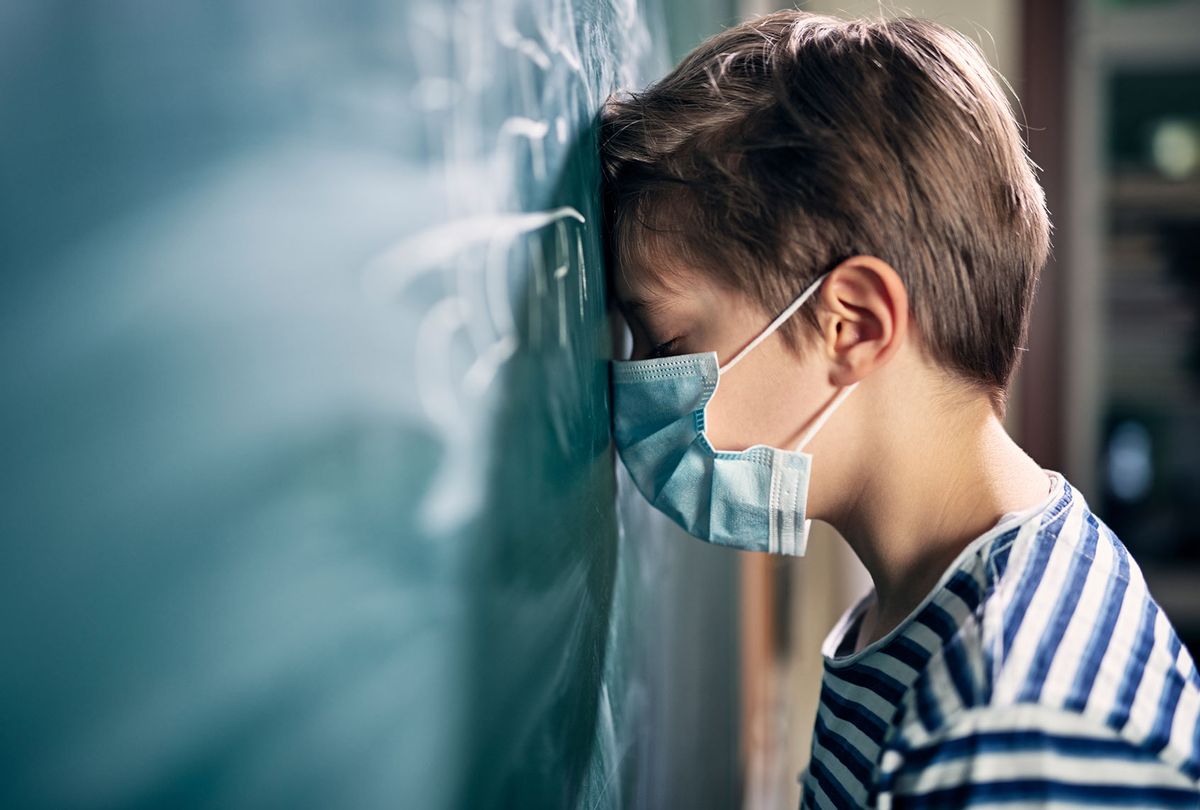With a third wave of COVID-19 infections sweeping the United States and widespread infection around the world, some schools are grappling with how to stay open safely, while others remain shuttered with remote learning curricula.
For many children, this new wave of infections will mean additional disruptions to their daily lives: reduced access to nutritious food, less physical activity, perhaps even limits on playtime with friends. Taken together, these and other overlapping impacts affect both their physical and mental health.
I've worked on health issues around the globe for decades, including during the Ebola epidemic and other crises. Though the pandemic has created global health challenges previously unseen, as president and CEO of UNICEF USA, I know that children are becoming the hidden victims of the pandemic.
A new CDC analysis finds that since 2019, the proportion of mental health-related emergency room visits for children aged 5 to 11 and 12 to 17 years increased approximately 24% and 31%, respectively. So why are more kids ending up in the emergency room for mental health issues? Part of the answer seems to be that critical mental health services, like counseling, are being disrupted by the pandemic. Indeed, a recent report found that 93% of countries worldwide are facing such disruptions. Many of those services are typically made available through schools and other community institutions, institutions that are now being forced to move online or adapt their programming.
I've seen firsthand — not just in the United States but in all corners of the globe, from Syrian refugees in Jordan to Sri Lanka — that psychosocial support for children in moments of crisis is the key to ensuring that critical years of learning are not lost. To help kids cope with this crisis today, and to reduce years of turmoil and future trauma and health impacts, governments, schools and nonprofit organizations must act urgently to expand equitable access to mental health services and other forms of psychosocial support.
Even before the COVID-19 pandemic, the state of children's mental health in the United States was alarming. A recent report indicated that the U.S. was ranked 36th out of 38 high-income countries in terms of child wellbeing. Black children are particularly vulnerable, and face a double burden of racial injustice and the disproportionate impact of COVID-19 on Black lives.
Children's mental health is often deprioritized when it comes to emergency relief, and far too often, trauma is not addressed until long after disasters have subsided. When UNICEF USA was working to support disaster relief following Hurricanes Harvey and Maria, one of my colleagues noted that trauma is "as destructive as floodwater," and can keep children locked in survival mode for life.
Natural disasters are different than pandemics, but there is a lot that we can learn from them when it comes to incorporating psychosocial support into COVID-19 responses. When I worked as an emergency responder in Sri Lanka following the 2004 tsunami, I met with medical teams on the ground in hard-hit coastal areas. Time and time again, they told me they needed counselors — both for themselves and their patients.
Some leaders in the space are tackling this emerging crisis by starting with those most in need. In the United States, the Johns Hopkins Center for American Indian Health is adapting and piloting first aid training to make it culturally relevant for frontline and essential workers in the Navajo Nation and White Mountain Apache Tribe. The Center is also sending holistic wellness boxes with culturally relevant mental health resources, including a children's book about handling COVID-19 in tribal communities, to families in need.
Technology is also providing new tools for socially distant psychosocial support. In Sudan, for example, UNICEF and members of the community-based child protection networks organized psychosocial support sessions through local radio broadcasts and WhatsApp messages to give families tips and guidance on how to support children's wellbeing during the pandemic. In the United States, the Upswing Fund for Adolescent Mental Health, a new collaborative funded by Pivotal Ventures, was recently established to better support needs of young people of color and LGBTQ+ youth through digital technology and other mental health resources.
Parents can also take an active role in supporting their child's wellbeing by promoting play and physical activities. Play has long been documented as a critical tool to help children improve their social-emotional skills, and tools such as age-appropriate dance and yoga videos can also support children's mental health and help them cope with the stresses brought on by the pandemic.
With children around the world facing an incredible level of uncertainty and trauma, we must redouble our commitment to provide them with the psychosocial support that they need and deserve. Our collective response to that challenge will define us as a generation. Let's celebrate our shared humanity by taking action as a global community and give children what they need to thrive.

Shares